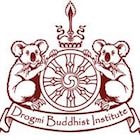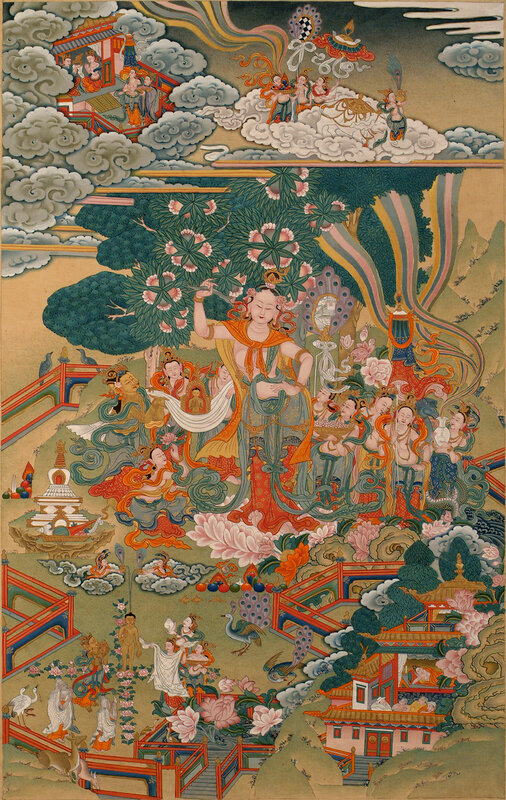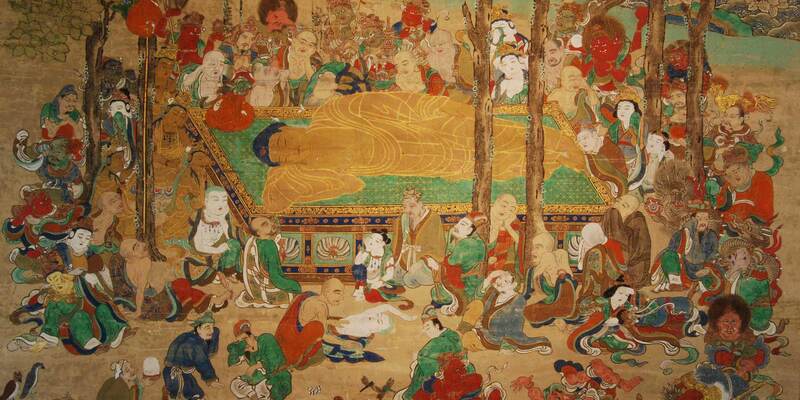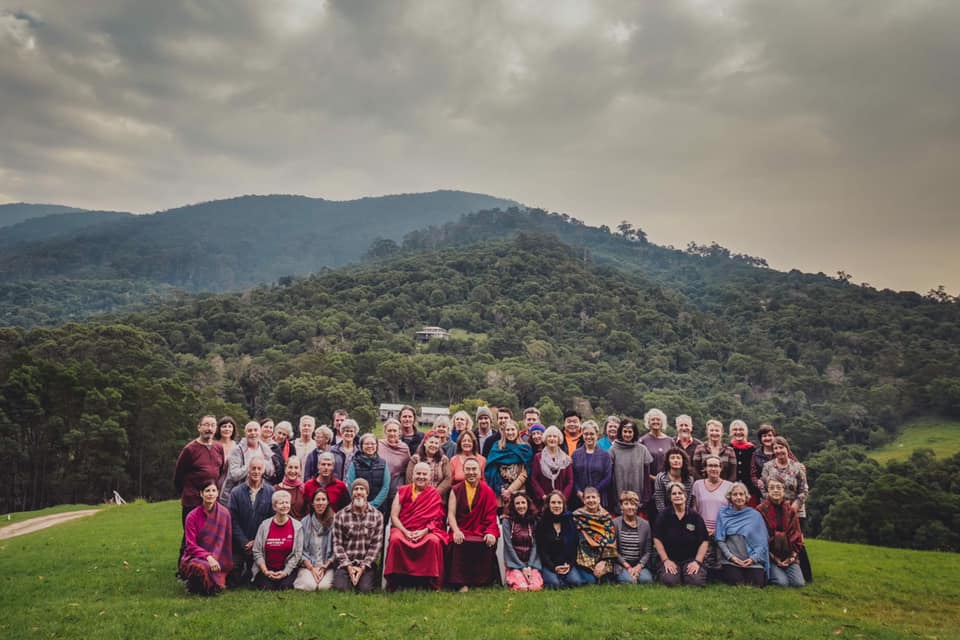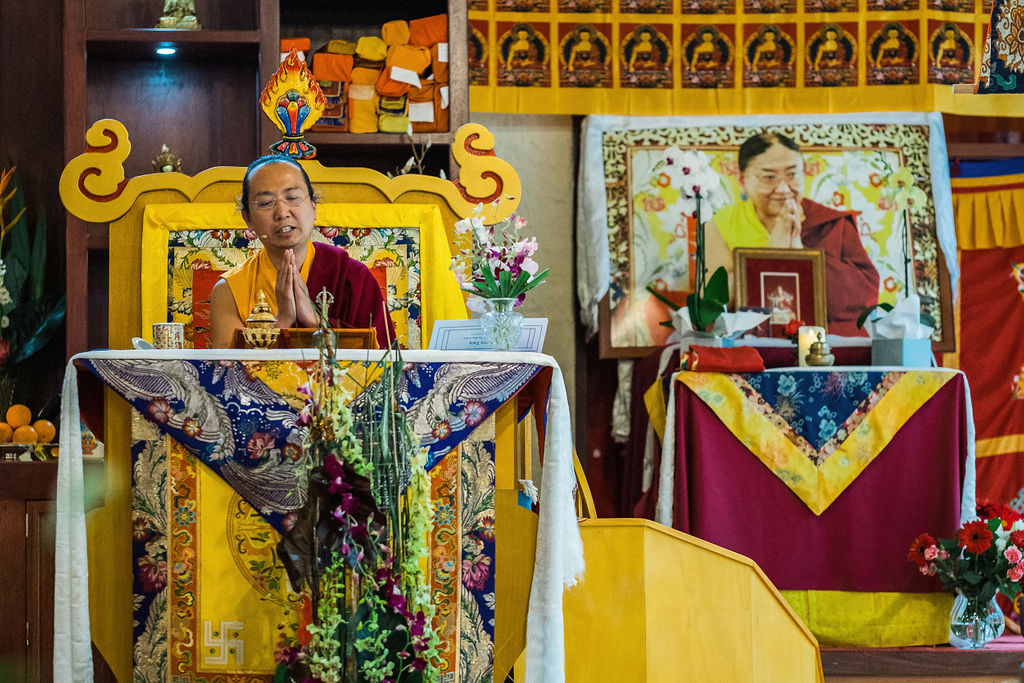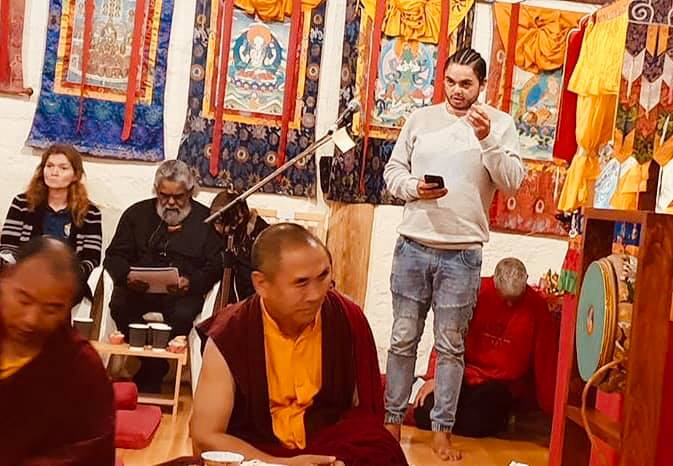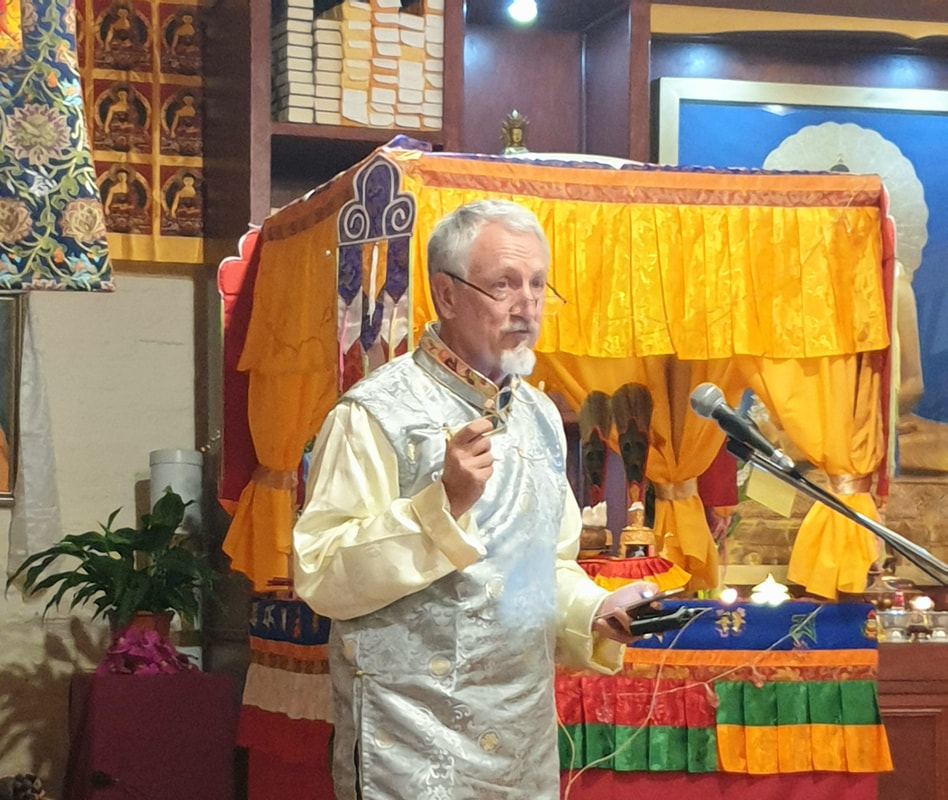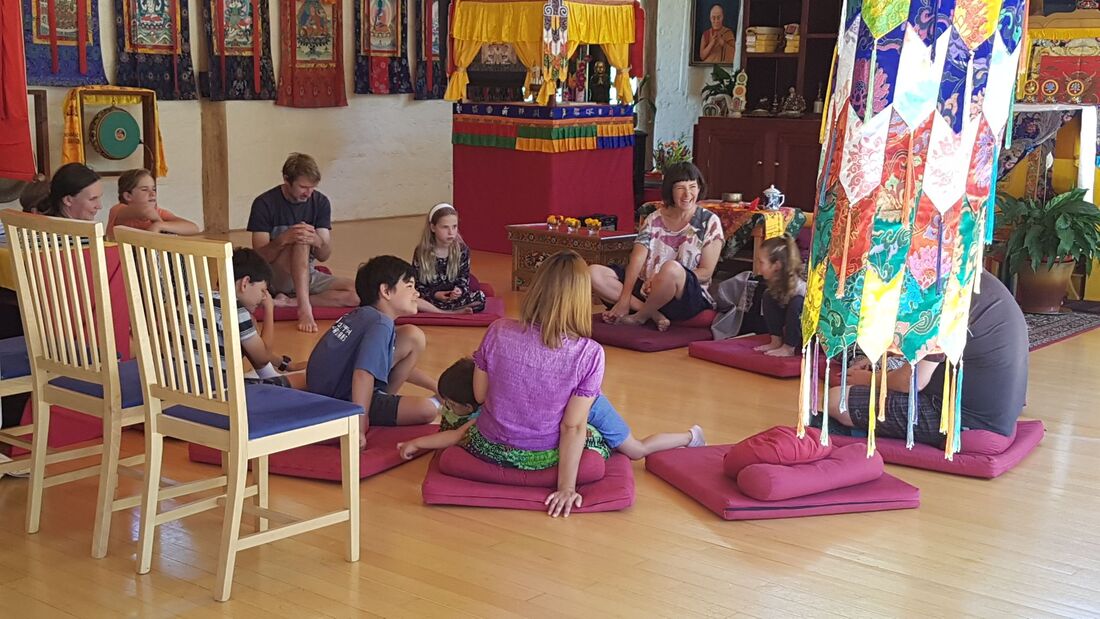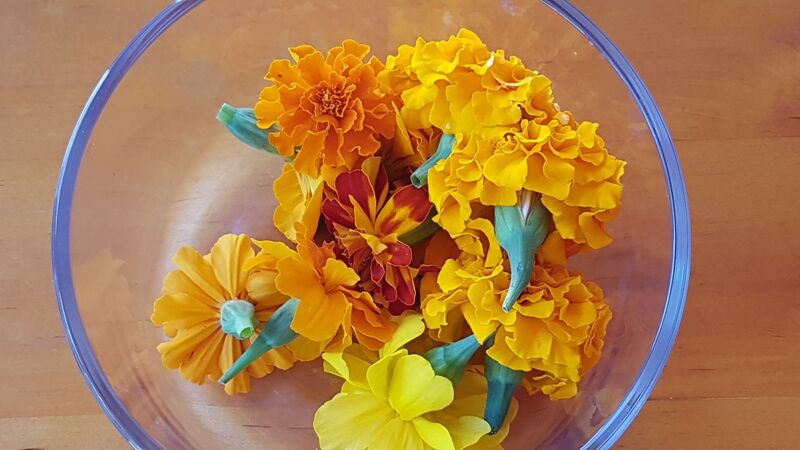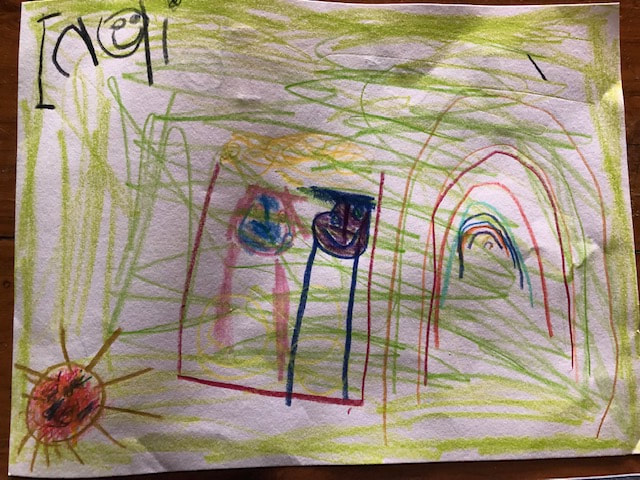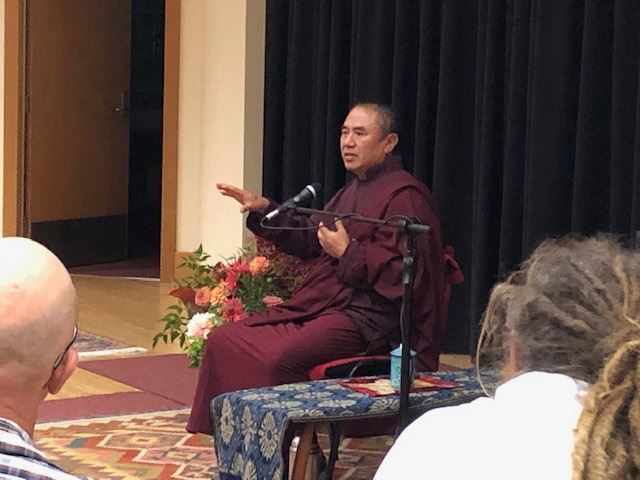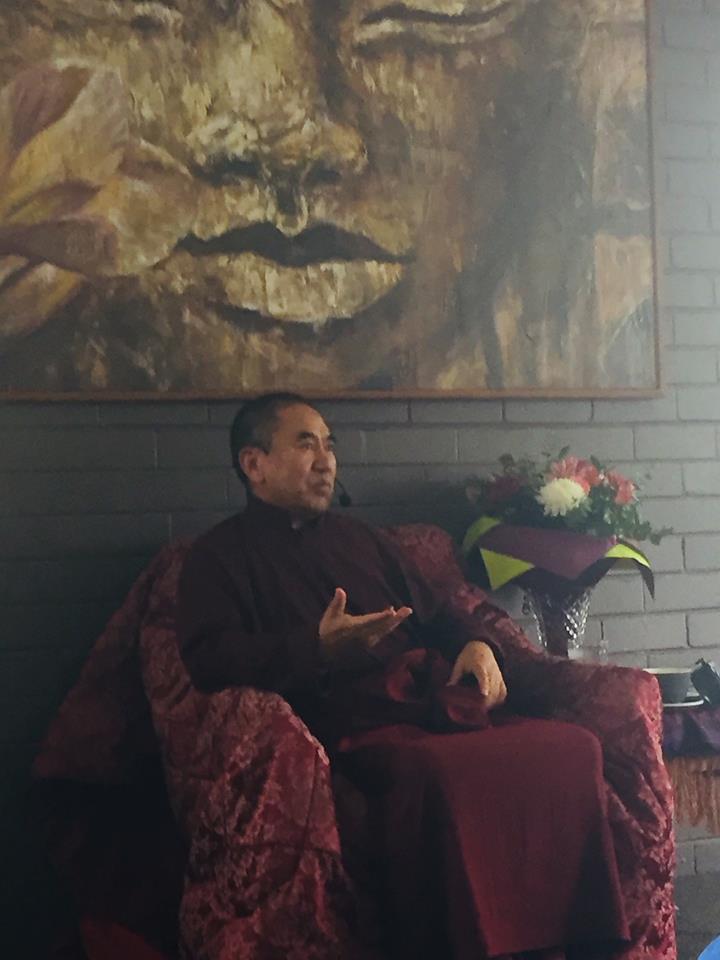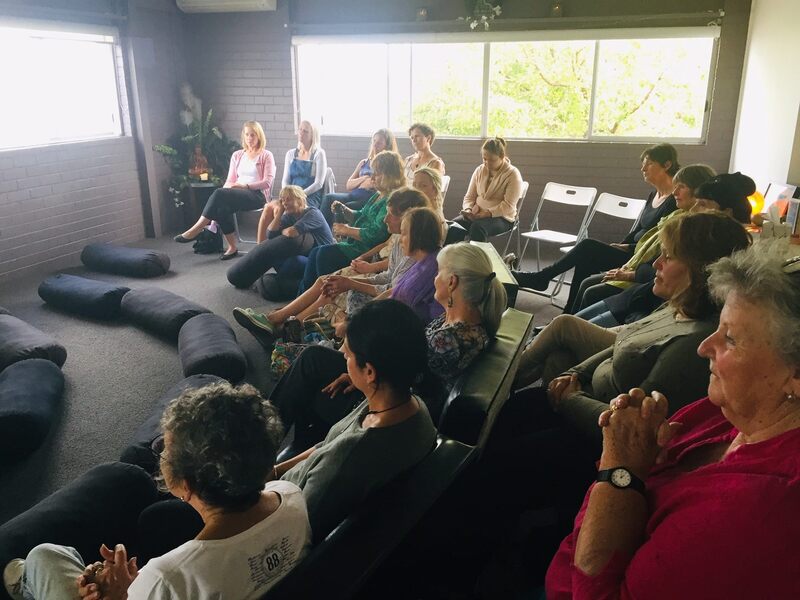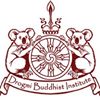at Kamalashila Tibetan Buddhist Centre4 June to 2 July 2019Saga Dawa within the Tibetan Calendar falls this year on 4 June to 2 July 2019.
The most important month in the Tibetan lunar calendar is Saga Dawa, the 4th month and the 15th day of the lunar month, the full moon day is called Saga Dawa Düchen which falls on Monday 17 June 2019. Düchen means “Great Occasion” and this day is the single most holy day of the year for Tibetan Buddhists. Saga Dawa Düchen commemorates the Birth, Enlightenment, and Parinirvana of Buddha Shakyamuni marked on the same day of the Full Moon within this month. Although, there is a specific separate day in which Buddha Shakyamuni’s birth is celebrated. This is referred to as Tampei Düchen, this year falling on Sunday 9 June. In other Buddhist traditions this occasion is known as Vesak or is sometimes called Buddha Day and may fall within a different month, yet around the same time of the year. Saga Dawa is known as the month of merits. Tibetan Buddhists make extra efforts to practice more generosity, virtue, and compassion in order to accumulate greater merit. Tibetans believe that during this month, the merits of one’s actions are multiplied. On the 15th day of the month the merits of one’s actions are hugely increased. Accumulating this merit is understood in many ways, it could be seen as the fruits of good karma, especially when it brings us closer enlightenment. The three grounds of meritorious actions are generosity and mental culture or meditation. Traditionally, the holy day of Saga Dawa Düchen is observed through practice, generosity, and the performance of meritorious deeds, such as the practice of Life Release. This is commonly performed by purchasing animals that are destined to be killed (like worms, crickets, or fish), and releasing them into their natural habitats with prayers and positive aspirations. One must be mindful though that this release does not cause them more suffering. The act of giving life in this way is believed to extend the practitioner or benefactor’s lifespan and create positive circumstances. Another excellent way to make offering of life on this special day is to observe a vegetarian or vegan diet, a common tradition during this month. You can also take an extended vow or vegetarianism, creating vast merit through your noble aspiration to reduce suffering. “Behold, O monks, this is my last advice to you. All component things in the world are changeable. They are not lasting. Work hard to gain your own salvation”. The Buddha A special day of practice will be held for Saga Dawa Düchen at Kamalashila Tibetan Buddhist Centre, 9000 Princes Highway – programme to be announced shortly. Held at Kamalashila Tibetan Buddhist CentreMay 2019In the very first gathering in the gompa for the 1st term of year three of The Complete Path (TCP), we offered the Sixteen Arhat Puja. Praying for the long life of all the great masters, may they remain teaching the Dharma and may the Dharma flourish. To dedicate all this merit to all beings for their happiness, liberation and enlightenment. This concluding year of TCP in Australia is on the vast and foundational teachings on Ngöndro. Here are some excerpts from the eight-day study program. How to reflect about Refuge: Khenpo-la explained the benefits of taking Refuge.
Teachings on taking vows: Khenpo-la gave refuge and bodhicitta transmissions to participants and explained in detail the importance of cultivating bodhicitta mind - the genuine, heartfelt and driving motivation to achieve Buddhahood for the benefit of all beings - for Mahyahana (and Vajrayana) practitioners. Put simply, without bodhicitta, Buddhahood is not achievable, and you’ve got to feel it - it can’t be dry and intellectual, it must be juicy, warm and real. The heart must be engaged. All sentient beings - including those really challenging ones - are needed to develop, refine and beautify our mind and heart by practising loving-kindness and Great compassion to generate conventional bodhicitta (both wishing and engaging) and eventually realise Absolute bodhicitta (from the first bhumi onwards). It’s tough, yes, but the samsaric mind is tougher and harder because it’s endless. Bodhicitta is needed at the beginning (to enter the path), in the middle (to stay on the path) and at the end (to share the path by benefiting others). Motivation excerpts on taking refuge during the teachings:
Vajrasattva teachings: We focused on the reasons, practices and benefits of performing Vajrasattva practice as part of uncommon Ngöndro practice. Khenpo-la explained the symbolism of the father and mother Vajrasattva (clarity and empty aspect) and the common and uncommon visualisations to perform. Khenpo-la recommended students to say the mantra daily (minimum of 21 times) in order to gradually cleanse our mind streams which have been accumulating all manners of habits since beginningless time. Khenpo-la also explained the meaning of the 100-syllable mantra which is extraordinarily beautiful, profound and heartfelt. Suzi’s farewell in service to Khenpo-la: We all gathered to celebrated Suzi Walker who has overseen looking after food for all Dharma retreats for 17 years with Khenpo-la. She has been like a Dharma mum to all of us and has worked tirelessly to make sure we get fed both nourishing food mentally and physically! A group of us after the exam prepared and performed a live recording of a song dedicated to Suzi called “An Ode to Suzi” to celebrate the love we all share for her. It was written by Russell to the tune of the Australian folk song called “old man emu”, so much fun was had by all. The group photo of the Complete Path students from Year 3 at Kamalashila Tibetan Buddhist Centre was positioned under the glorious presence of Mount Gulaga. Thank you to Dean for his beautiful photos during the entire week, as well as some additional images from Khenpo-la, and other students. Message from Khenpo la: “The eight days of the Complete Path program were filled with richness and warmth. I encourage all students to share what you learnt with others and embody the knowledge and practise we did together. See you all in September. Thank you everyone.” Held at Kamalashila Tibetan Buddhist CentreApril 2019
His Holiness then spoke about the significance of the namesake of the centre – Kamalashila, the renowned 8th century Buddhist master from Nalanda University, India – who journeyed to Tibet and the future seat of the Sakya order. The teaching program commenced with an early Green Tara puja led by Khenpo-la, followed by a tremendous day of two Empowerments bestowed by His Holiness. The King Tradition Avalokiteshvara Empowerment was conducted in the morning and the Six Dome Uncommon White Tara Empowerment in the late afternoon. His Holiness proceeded to give two teaching sessions for two days on the Uncommon White Tara. He explained the importance of the practice being an unbroken direct lineage traced back to the historical Shakyamuni Buddha in terms of authenticity. The Uncommon White Tara sadhana belongs to the Kriya class of tantra but sealed by higher tantra to perform different practices. His Holiness outlined the three parts of the sadhana practice (preliminaries, main practice and conclusion) and gave detailed guidance on the common and uncommon aspects. At the end of the last teaching session, His Holiness bestowed the Vajrakilaya Torma Empowerment that has been in the Khon family lineage since around the 10th century, when directly received from Padmasambhava in Tibet! In addition to the sadhana teachings and empowerments over the three days, His Holiness shared many pithy and practical teachings for new and old practitioners alike. This included reminding us that we cannot hide any action of body, speech and mind from the Law of Karma (cause and effect), that our mindfulness and vigilance need to act as our teacher. Over 60 people attended the complete teaching program in Tilba, as all the practitioners look forward to receiving teachings from His Holiness in the future. We wished His Holiness the safest of travels back to India, and thanked Him for turning the Wheel of Dharma for all of us at Kamalashila Tibetan Buddhist Centre. Held at Kamalashila Tibetan Buddhist CentreApril 2019Zara Kaye of Kamalashila Tibetan Buddhist Centre (a primary school teacher and senior student of Khenpo-la’s), presented a seven-week workshop/course under Khenpo-la’s guidance on meditation.
Families of the local south coast area came each week with great enthusiasm and energy to learn about meditation and the bringing of these new tools into their everyday lives. They carried out lots of different craftwork based on mantra themes, songs about loving kindness, weekly family picnics to finish the morning time together and so much more. On the last day, the children wrote thank you’s to Khenpo-la, Zara and to the centre through their creative artwork. BY KHENPO NGAWANG DHAMCHOE12 and 13 April 2019Khenpo-la gave his inaugural dharma talk in Bega NSW, far south coast recently. He spoke on the topic of “Facing Difficulties with Optimism”. The talk was very well attended, with around 70 people, who listened intently and asked some wonderful questions. Thank you Khenpo-la and thank you Tjenka for your superb organising of this event. Khenpo-la gave the second in a series of Public Talks on the far south coast of NSW, at Merimbula.
This topic was “How to Give with a Warm Heart”. Around 30 people attended, listening to Khenpo-la speak on the basic human desire, which is to be happy, though this needs to be trained and nurtured. An honest kindness and generosity to others, requires honesty and truthfulness to, and about, oneself. We potentially can attain happiness and good thoughts, speech and actions as Buddha did, with persistent effort. Reflections by Jan Thank you Khenpo-la, thank you to Chris and to Ingrid at Yoga Humm for facilitating this event. |
|
|
